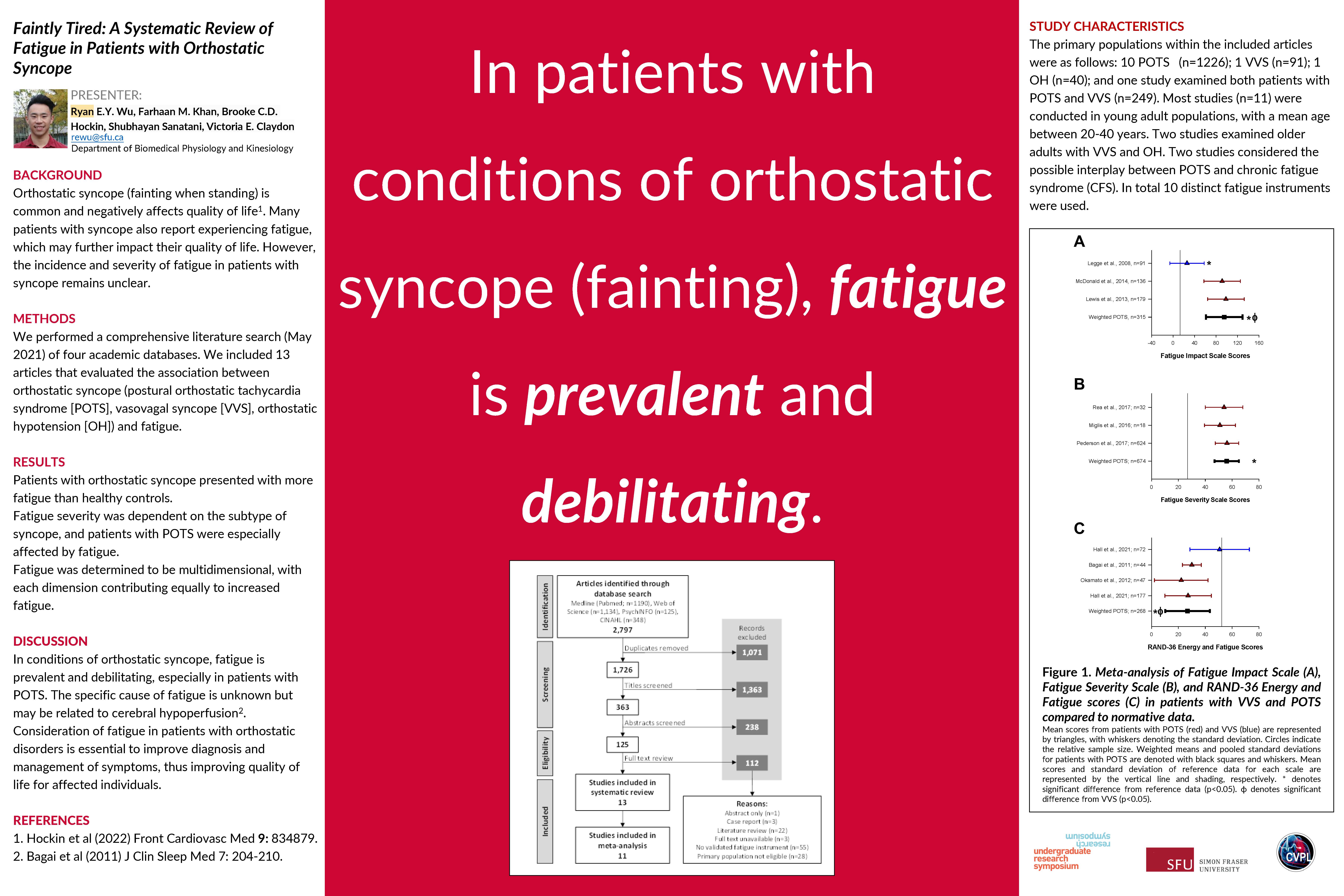Faintly Tired: A Systematic Review of Fatigue in Patients with Orthostatic Syncope
Main Article Content
Abstract
Orthostatic syncope occurs when blood flow to the brain is reduced and has three important subtypes: vasovagal syncope (VVS), postural tachycardia syndrome (POTS) and orthostatic hypotension (OH). A frequently reported symptom of orthostatic syncope is fatigue, which adversely impacts affected individuals.
A systematic review is a type of literature review that uses a reproducible, step-by-step approach to search for articles, allowing data to be summarized from multiple studies. This method was used to investigate the association between fatigue and conditions of orthostatic syncope. Thirteen articles were included in the final review and a meta-analysis was performed to establish possible links between syncope subtypes and fatigue severity.
Fatigue scores were significantly higher in patients with orthostatic syncope than healthy controls. Fatigue was not as strongly associated with all forms of syncope as patients with POTS reported higher fatigue scores than those with VVS. Moreover, fatigue was identified to be multi-dimensional, with each dimension contributing equally to increased fatigue. Chronic fatigue was a comorbidity of POTS, potentially affecting quality of life. Brain fog was another common symptom of POTS and is characterized by a lack of mental clarity, affecting productivity and cognition. Finally, fatigue was associated with a negative influence on mental health in patients with orthostatic syncope.
To conclude, in conditions of orthostatic syncope, fatigue is prevalent and debilitating, particularly in patients with POTS. The consideration of fatigue in patients with orthostatic disorders is essential to improve diagnosis and management of symptoms, thus enhancing quality of life for impacted individuals.
Faculty Supervisor: Dr. Victoria Claydon, Biomedical Physiology and Kinesiology, Simon Fraser University
Article Details

This work is licensed under a Creative Commons Attribution-NonCommercial-NoDerivatives 4.0 International License.

